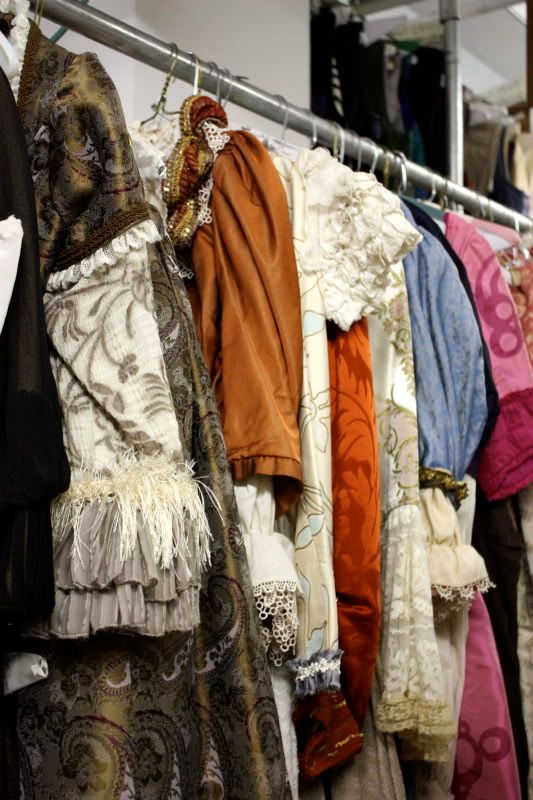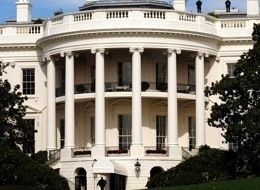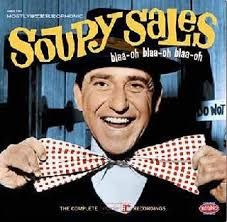By
Miriam Kreinin SouccarBigger Fees, Smaller Incentives Threaten Boom
At least seven feature films, including Sex and the City 2 and Wall Street 2, and 16 television shows are shooting in New York right now. But the city's lucrative production business could soon end up on the cutting room floor.
The film industry, which has enjoyed record growth since the state started its tax incentive plan five years ago, is being hit with a number of new obstacles that could wreck the business and send longtime hits like Law & Order packing to cheaper locales.
The latest shock to the industry is a plan by the city to charge the largest fees in the nation for filming in its buildings.
The Mayor's film office is also drawing up plans to charge for its famous free permits.
Even more troubling, the city's tax incentive program is out of money and in the process of being scaled back, and the state is in negotiations over whether to renew its tax incentives.
The quadruple whammy is pushing the production industry into its most precarious time since the dark days of the early '90s, when Hollywood boycotted New York and nothing was shot here at all.
“The message we're being given is that 'New York is no longer a production-friendly place,' ” says Richard Brick, a New York-based producer and former film commissioner under Mayor David Dinkins.
Industry executives question the moves as the production boom has been one of the state's few bright spots in the recession. The production industry added 800 jobs in 2008, while most sectors posted job losses. And according to a 2007 Ernst & Young study, the state and city collected $2.7 billion in taxes from movie and TV productions, while laying out only $690 million in tax credits.
“We've proven that filmmaking is good for New York, and they are killing it,” says producer Michael Hausman, adding that his Taking Woodstock, which spent more than $6 million in New York, would not have been green-lighted without the tax incentives.
The biggest concern to filmmakers right now is the proposal by the Department of Citywide Administrative Services to charge $3,200 every time a TV show, movie or commercial shoots in a city building.
The new fees, which were developed with the Mayor's Office of Film, Theatre and Broadcasting and will be split 50-50 between the two agencies, are likely to go into effect in the next couple of months, after a public hearing process is completed. Sources say the agencies estimate they will each earn around $136,000 a year. In the meantime, the film office has drawn up a plan to charge for some of its services, like issuing permits to film on the streets, if its $1.8 million budget is cut.
Katherine Oliver, the city's film commissioner, says the fees are a result of the financial crisis and are necessary to “cover administrative costs associated with the use of city buildings by productions.”
She notes that filming at city buildings represents less than 5% of the total location shooting. She adds that the DCAS fee is nominal in comparison to what private locations charge for film shoots, which can be as much as $10,000 a day.
But film executives fear that once one city agency starts imposing fees, others—like the MTA, for example—will follow suit, making filming in New York even more cost-prohibitive. If the fees become excessive, longtime New York icons, such as Law & Order, could end up somewhere like Detroit or Chicago.
“We're always being asked [by corporate parent NBC Universal] about taking shows to any number of cities, where it can be more cost effective,” says Fred Berner, executive producer of Law & Order. States like Michigan offer a 40% tax incentive.
Production executives agree that if the fees alone were all they had to contend with, there would be less worry. But already, the city's 5% tax incentive program has run out of money, and legislation to extend it calls for downsizing the credit to 4%, reducing it further over the life of a television show, and capping the amount a production can get.
In addition, the $350 million, one-year extension of the state's successful 30% tax incentive program expires March 31, and with a state budget deficit that could reach $4.1 billion this year, it is unlikely it will be refunded at the same level.
Film industry lobbyists began meeting with the governor's office this month in a bid to make the program permanent, or at least more long-term, but the issue won't be resolved until the budget is finalized in April.
“We have the single most successful economic development program in recent history, and we're nickel-and-diming it when we should be fully funding it and making it a long-term proposition,” says Assemblyman Michael Gianaris, D-Queens.
_____________
Film And TV Costume Company Folds
 Odds Costume Rentals,
Odds Costume Rentals, which for 22 years supplied clothes for TV shows like Law & Order and movies such as Road to Perdition, filed for Chapter 7 bankruptcy protection this week.
The Manhattan-based shop, which started liquidating its inventory over the summer, was a victim of rising rents during the recession and changes in the way the entertainment industry does business. Revenue fell about 10% last year, according to Jeanette Oleksa, the firm's owner. That loss, coupled with a rent increase of $5,000 more per month a couple years ago, was too much to handle.
“For small businesses in New York now, if you don't own the building you're in, you're not going to stay in business,” Ms. Oleksa said. “You get eaten up alive between rising insurance and rents.”
Odds Costume Rentals owes a total of $275,196 to creditors, $86,309 which is back-payment on rent, according to the filing.
Ms. Oleksa said the main problem that's plaguing costume shops these days, however, is simply that productions now get much of their costumes for free from designers and clothing companies looking for promotion.
“The people at the top say, ‘We can just get these jeans from the Gap and these sneakers from Nike, and we've got a whole free outfit here. Why do we need to rent anything?'” Ms. Oleksa said.
Odds Costume Rental (231 W.29th Street, 3rd Floor, open to 4pm), an industry rental resource for over twenty years, is closing its doors next month, and are currently putting their entire enormous archives on sale. For the past few weeks, the sale has been open only to designers, costumers, and stylists, but according to the ladies who run the sale, it will be opening to the public starting this Friday.
Meanwhile, Odds Costume Rentals wasn't the only production-related business to shutter this week. Snap Productions, a scouting and location firm, also filed for Chapter 7 bankruptcy protection.
Snap owed a total of $561,070.09 to creditors including $35,000 in lease arrears to Grubb & Ellis Management Services Inc.



























